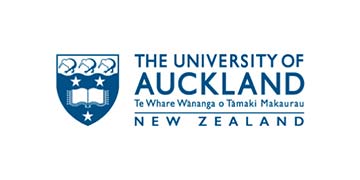University of Auckland: Velocity Innovation Challenge inspires new generation of entrepreneurs
Hundreds of people have participated in the Velocity Innovation Challenge as entrants, advocates, mentors and volunteers with the united purpose of bringing new ideas into the world.
Innovation Challenge is a key event for the University of Auckland’s entrepreneurship development programme Velocity. Students and staff are invited to share a venture idea that will solve a problem, big or small. Each 1,000 word entry is assessed and considered for a $1,000 prize with 12 prizes up for grabs. Entrants can submit ideas for a commercial or social venture, and this year additional prizes were added for ideas that tackled an aspect of the United Nations Sustainable Development Goals.
Velocity CEO and current Engineering and Commerce student Jason Tran says “It’s inspiring to see the quality of entries this year that reflect the skills and interests of a diverse range of participants.”
Ideas are the ‘entrants’ to keep. Darsel Keane, Director of the Business School’s Centre for Innovation and Entrepreneurship, which administers the Velocity programme, says “The Velocity programme was created as a free professional development opportunity for all students and staff at the University of Auckland. The University recognises its role in developing the talent that will create a more prosperous New Zealand. In order to face the economic and social challenges of the present and future, we need fresh ideas. And through the Velocity Innovation Challenge, we have seen plenty!”
Winners were announced at the Velocity Innovation Challenge prizegiving event, hosted at Unleash Space, the University of Auckland’s innovation hub and maker space. The guest speaker was Rebecca Percasky, co-founder of The Better Packaging Co, who are on a mission to find the world’s most sustainable packaging solutions. Entrants are now moving into the judges’ feedback stage. This is an excellent opportunity for entrants to receive quality feedback from industry experts and leaders – volunteers from the network of the Centre for Innovation and Entrepreneurship. The feedback received will help them with their next steps to further develop their ideas, with many of the participants choosing to go forward to enter the Velocity $100k Challenge, taking place in August.
Entrants into the Velocity $100k Challenge have the opportunity to take part in free entrepreneurship professional development opportunities to learn how to bring their ideas to life. They also have an opportunity to win part of a $100,000 prize pool including one of five places in a six-month venture incubator.
2021 Velocity Innovation Challenge winners
‘AI-driven application to cultivate a positive relationship with food and body image’ – A low-cost eating disorder or negative body image companion app, which provides clinically-approved tools and exercises to support people through a recovery journey. The app offers access to cognitive behavioural therapy, plus a library of meditations, videos and regular workshops. The app is personalised to the user using AI.
‘emPower’ – A platform that allows users to buy and sell decentralised and renewable energy. emPower is designed to accommodate, simplify and manage the selling of power.
‘Fistbump’ – An app to help students meet new people and make new friends at theiruniversity, using a personality and interests algorithm and a uniquefriendship formation process (match, chat and hang!).
‘H2OQUAL’ – Economic real-time water quality monitoring system for agritech and potable water. The system will be mass-producible that will enable ubiquitous deployment. Cloud computing and machine learning coupled with the internet-of-things (IoT) framework will be utilised for the analysis of sensor data and sharing the information.
‘LIME (Live, In-utero, Maternal-fetal Electrocardiogram)’ – Maternal-fetal heart rate monitoring is an important way to stay in tune with pregnancy, from mid-gestation through to term. LIME is creating a device allowing parents and physicians to monitor pregnancy from the comfort of home, to give mum and baby the best care possible.
‘Native Harvest’ – Bringing delicious sustainably sourced native berries to consumers. Native products like manuka honey are highly valuable. However, despite many indigenous plants producing sweet edible berries, we only eat introduced fruit. Currently only foragers can enjoy them. Native Harvest aims to bring Aotearoa’s biodiversity to a wider audience.
‘NextGen SpaceComms’ – In today’s modern space age, increasingly complex technologies are sent to space to collect data; yet slower, hackable radio communications are still used for data transfer. Using optical communications in the form of lasers, faster and completely secure data transmissions propel information sharing between Earth and space into the future.
‘Outhere’ – An imaging device to determine the composition of non-atmospheric celestial objects and their resource extraction value. Outhere aims to produce commercial space opportunities and elevate New Zealand’s position in the global space industry. Outhere technologically innovates mineral extraction which promotes sustainable management of the Earth’s resources.
‘Risos Enterprises’ – 150 years ago, pristine drinkable water could be found everywhere. Today, without massive treatment, drinking freshwater could be fatal. Sensing water-pollution is key but impeded by high cost and long testing time. Risos Enterprises technology will cut down both, using novel high-tech laser-based autonomous sensing.
‘Savior’ – Savior is a patch for people with convulsive seizures that detects and notifies loved ones when a person is in danger of a convulsive seizure. Savior is an improved alternative to current detection devices such as headbands and bracelets as the patch offers privacy and can be hidden underneath clothing.
‘The Next Step’ – The gap between low-income and high-income households is continuing to grow. Only six percent of students from low-socioeconomic backgrounds attend university. The Next Step is a programme designed to inspire high schoolers to enroll into university.
‘Tiro Hauora Wai (THW)’ – The degradation of New Zealand’s waterways is an accelerating and highly relevant issue. THW has developed a prototype tool that utilises high-resolution satellite imagery, machine learning techniques, and data analysis to remotely assess waterway health and monitor the long-term change of even New Zealand’s smallest waterways.

